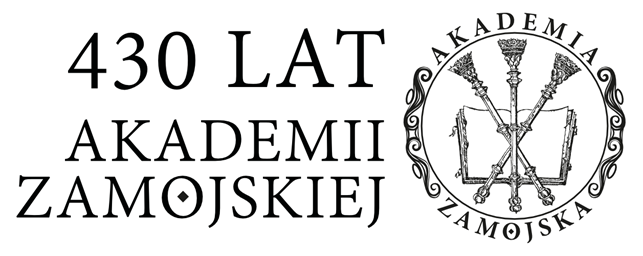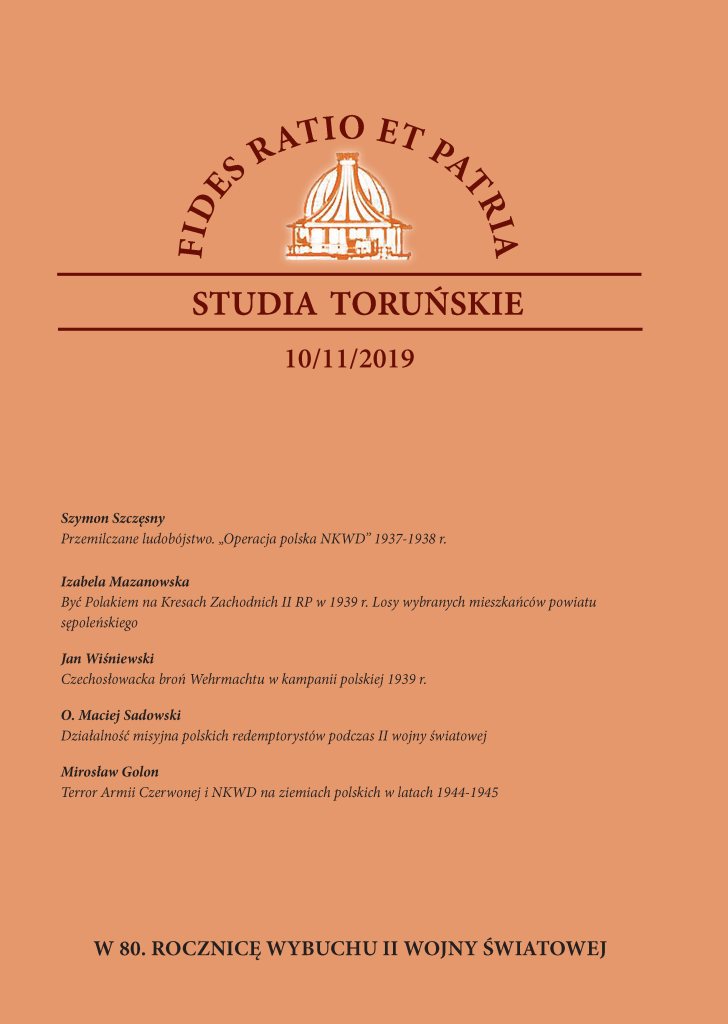Číslo 10/11 (2019)
W 80. ROCZNICĘ WYBUCHU II WOJNY ŚWIATOWEJ
W wyniku II wojny światowej ludzkość poniosła niewyobrażalne straty. Konflikt dotknął kilkadziesiąt krajów, a działania wojenne prowadzono w Europie, Afryce, Azji oraz na oceanach i niemal wszystkich morzach świata. Według różnych szacunków mogło w niej zginąć od 50 do ponad 70 mln ludzi, w większości cywili. Wśród nich było 6 mln polskich obywateli.
II wojna światowa rozpoczęła się 1 września 1939 r. od ataku Niemiec na Polskę. 3 września 1939 r., po zignorowaniu przez III Rzeszę ultimatum w sprawie bezzwłocznego wycofania wojsk z Polski, Francja i Wielka Brytania z dominiami: Australią, Nową Zelandią, Związkiem Południowej Afryki i Kanadą wypowiedziały wojnę III Rzeszy Niemieckiej. Wcześniej, Związek Sowiecki na mocy tajnego paktu Ribbentrop-Mołotow dokonały razem z Niemcami podziału strefy wpływów w Europie Środkowowschodniej. Efektem tego był atak ZSRS na Polskę dokonany 17 września 1939 r. Konsekwencją tej sytuacji stał się IV rozbiór Polski dokonany przez Adolfa Hitlera i Józefa Stalina. W historiografii ZSRS i współczesnej rosyjskiej używane jest pojęcie tzw. wielkiej wojny ojczyźnianej – od 22 czerwca 1941 r. ataku III Rzeszy na ZSRS do 9 maja 1945 r. – powtórzonej kapitulacji III Rzeszy w Berlinie (po Reims). Historiografia sowiecka i współczesna rosyjska odrzuca bowiem udział ZSRS w wojnie po stronie III Rzeszy w latach 1939-41 – od paktu Ribbentrop-Mołotow z 23 sierpnia 1939 i niemiecko-sowieckiego traktatu o granicach i przyjaźni z 28 września 1939 r. do ataku III Rzeszy na ZSRS. Stany Zjednoczone przystąpiły do wojny 7 grudnia 1941 r. w konsekwencji japońskiego ataku na bazę amerykańskiej marynarki wojennej w Pearl Harbor. Natomiast 11 grudnia 1941 r. USA wojnę wypowiedziała III Rzesza.
W tym roku upływa 80 lat od rozpoczęcia tej największej wojny w historii ludzkości. Niemcy o 4.35 zbombardowali bestialsko Wieluń, 10 minut później pancernik „Schleswig-Holstein” zaatakował polską placówkę na Westerplatte. Niemiecki plan przewidywał wojnę błyskawiczną, opartą na potędze armii stworzonej wbrew ustaleniom Traktatu Wersalskiego. Jej uwerturą było zajęcie Austrii i czeskich Sudetów, a później również Czech oraz podporządkowanie Słowacji. W niniejszej pracy została przedstawiona problematyka dotycząca losów Polaków przed wybuchem II wojny światowej na terytorium ZSRS, jak i w pierwszych miesiącach wojny na Pomorzu. Poruszono również tematykę dotyczącą użycia w kampanii polskiej 1939 r. uzbrojenia przejętego przez Wehrmacht po armii
czechosłowackiej. W pracy umieszczono także artykuły odnoszące się do działań zakonu redemptorystów podczas II wojny światowej oraz sowieckiego terroru na ziemiach polskich pod koniec II wojny światowej. W dziale Varia zamieszczonoszereg artykułów z zakresu historii, politologii, teologii i ekonomii. Mamy nadzieję, że wzbudzą one zainteresowanie Czytelników oraz poszerzą wiedzę o niektórych tematach dotyczących naszej historii i życia.
Temat przewodni numeru
Przemilczane ludobójstwo – „operacja polska NKWD” 1937–1938
pdf. (Język Polski)
Być Polakiem na Kresach Zachodnich II RP w 1939 roku. Losy wybranych mieszkańców powiatu sępoleńskiego
pdf. (Język Polski)
Czechosłowacka broń Wehrmachtu w kampanii polskiej 1939 r.
pdf. (Język Polski)
Działalność misyjna polskich redemptorystów podczas II wojny światowej
pdf. (Język Polski)
Terror Armii Czerwonej i NKWD na ziemiach polskich w latach 1944-1945
pdf. (Język Polski)
Varia
Philippines: Three years under Rodrigo Duterte
PDF (English)
Zarys dziejów politycznych Republiki Teksasu – wybrane aspekty
pdf (Język Polski)
La loi naturelle et la loi civile une problematique à redecouvrir
PDF (Français (France))
Przyjęty ślub ufności. Przyczynek do biografii naukowej i duchowej doc. dr Ludmiły Roszko
pdf. (Język Polski)
Ekoprzedsiębiorczość organizacji społecznie odpowiedzialnych w warunkach zrównoważonego rozwoju
pdf. (Język Polski)


 Język Polski
Język Polski
 English
English
 Русский
Русский
 Slovenčina
Slovenčina
 Hrvatski
Hrvatski

